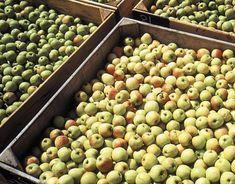
A row is brewing down under over draft regulations which could leave New Zealand and Australian fruit producers unable to claim their produce as healthy.
Proposals by the trans-Tasman regulator Food Standards Australia New Zealand would see apples, pears and stonefruit blacklisted from healthy food groups because their natural sugar exceeds 16g per serving.
Apple producers in Hawkes Bay, NZ, are branding the regulation ridiculous, pointing to the fact the fruit is high in fibre, low in fat and full of vitamins.
Nutritionists are pointing out that labeling apples and other fruit as too high in sugar will only harm healthy eating campaigns, such as 5 A DAY.
If the regulations go ahead, fruit producers will be unable to claim their produce is healthy and can help with weight management.
Dr Mike Butcher, of Pipfruit New Zealand, said it would be "common sense" to differentiate between foods where sugar was added, such as most processed foods, and those where sugar occurred naturally.
Apple producers in NZ have reacted badly to the news, with one saying: “Shortly they’ll be saying water is unsafe to drink.”
Ron Becroft, president of United Fresh, which runs the country’s 5+ a Day campaign, said New Zealanders had "terrible eating patterns".
"Fruit and vegetables are not one of the enemy," he said. "I think the messages that grandma told us that fruit and vegetables are fundamentally good for you are still there. And if you look at the body of evidence around the world there's absolutely no question that a diet high in fruit and vegetables is good for you."
He said he had hoped the draft would give produce growers and marketers more scope to make health claims.
"Politicians and legislators - when the only tool they've got is a hammer, everything looks like a nail,” he told local media.
However Food Standards Australia New Zealand, said the exclusion of some fruit was not intended and it is looking at ways to get around it. The authority says one solution could be to make an exemption for some foods.
Spokesperson Lydia Buchtmann said submissions are still being sought and a final set of rules should be in place by the end of this year.



